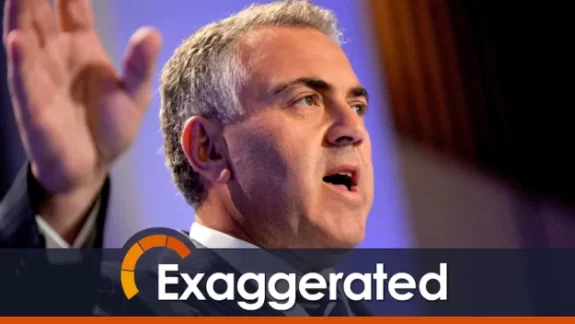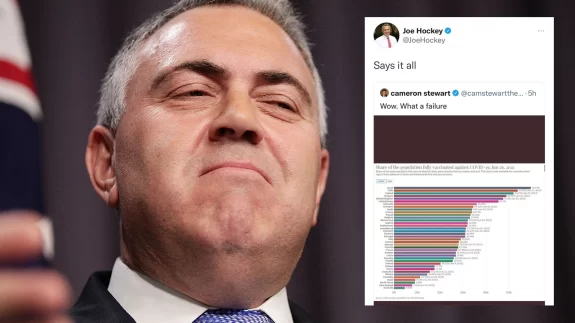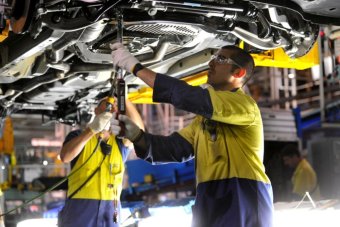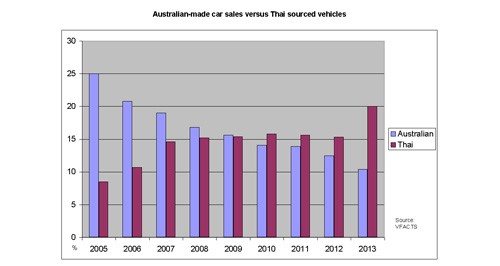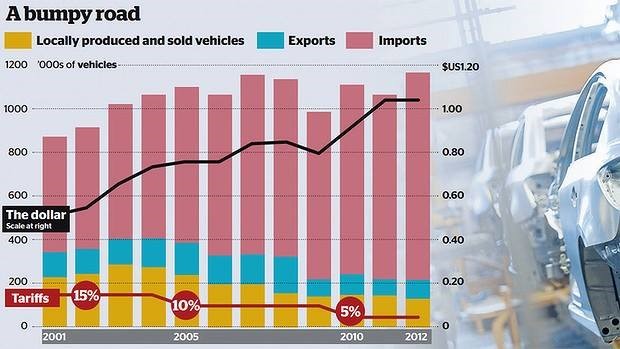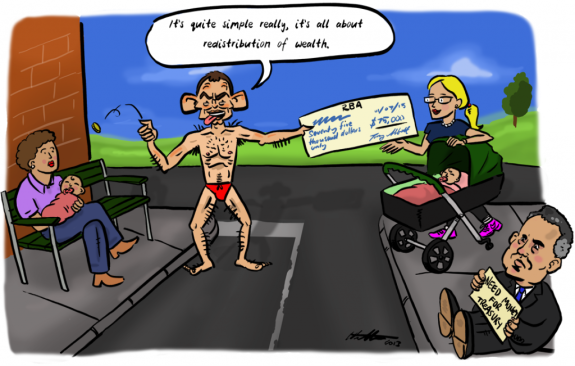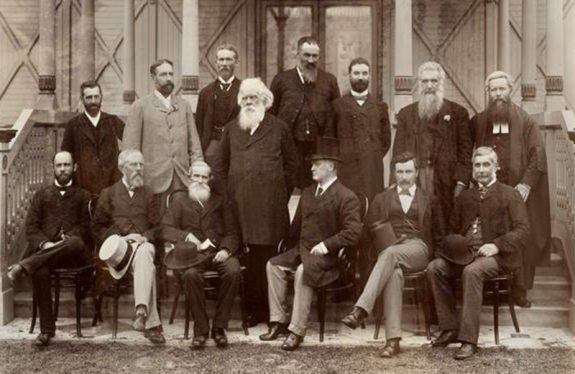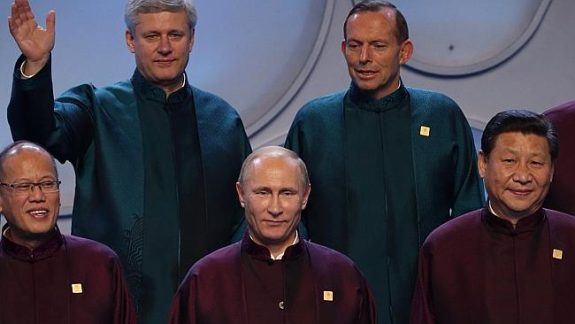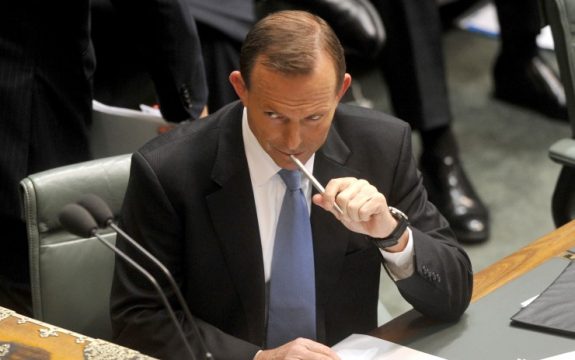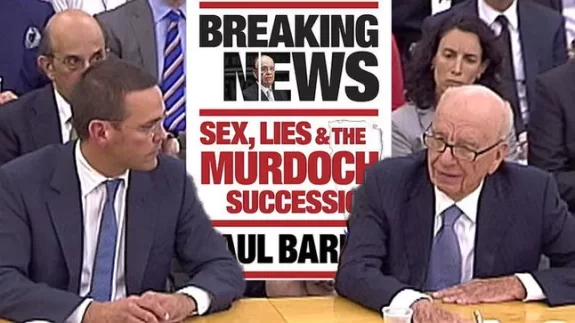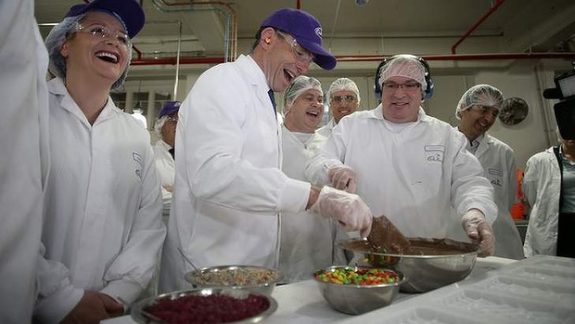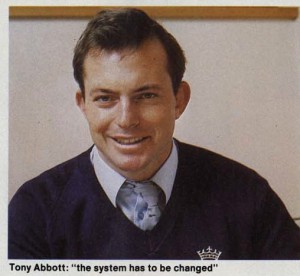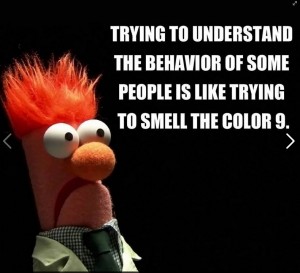For far too long Tony Abbott has said whatever he wants, whenever he wants, without a word of it being challenged.
The price on carbon became the “carbon tax”. It wasn’t a tax yet not only did his claim go unchallenged, but “carbon tax” slipped into the Australian vernacular. It is now used, widely and wrongly, to describe the price on carbon. The Home Insulation Program (the HIP) was a very successful program. Yet any discussion on it sees HIP prefixed with the word “failed”. Now who thought of that one? The Gillard minority Government was a successful government who passed how many pieces of legislation? Yet, thanks to Tony Abbott’s continual emphasis on the word “dysfunctional” in any reference to them, that’s the word frequently but wrongly used to describe it.
The biggest offender is the mainstream media who are happy to repeat the lie. “Carbon tax”, “the failed HIP” and “the dysfunctional Gillard Government” are three of their favourite phrases, one would think.
Repeating a lie is one thing. Failing to challenge it is another.
Have you noticed, incidentally, that no-one in the mainstream media challenges Tony Abbott on his repeated claims that asylum seekers arriving by boat (or attempting to arrive) are doing so illegally or attempting to break the law? They just keep assuming that he’s right (or know that he’s wrong and continue to let him repeat it ad nauseum).
Many people must really begin to wonder if it is true or not.
Well it is not.
A couple of days ago the ABC Fact Check team published an article confirming that it isn’t illegal, though they were somewhat soft on the prime minister with their title “Tony Abbott incorrect on asylum seekers breaking Australian law“. I think “lie” would be more to the point than “incorrect”. I find it hard to believe that Tony Abbott does not know the law.
In the two days since the article was published it has managed to marvelously escape the attention of the mainstream media. Perhaps they would prefer to ignore it, and why shouldn’t they? It does, after all, provide evidence that Tony Abbott has been repeating a lie – the one they seem happy to keep repeating for him.
So once again it is up to the independent media to repeat the truth. You can access the truth via the above link, or read on:
Prime Minister Tony Abbott has tried to discredit a group of asylum seekers who allege they were mistreated by the Royal Australian Navy, by claiming they were attempting to break Australian law.
Footage obtained by the ABC shows several asylum seekers – who Indonesian police say were on a vessel forced back by the Australian Navy on January 6 – being medically assessed for burns on their hands. The asylum seekers say they were burnt and kicked when the Australian Navy forced them to touch part of their boat’s engine.
The Government has denied the allegations and defended the professionalism of the Navy, with Mr Abbott asking the question: “Do you believe Australian naval personnel or do you believe people who are attempting to break Australian law? I trust Australia’s naval personnel,” he said.
Is Mr Abbott right to say asylum seekers who make the journey to Australia are attempting to break Australian law?
Last year ABC Fact Check looked at the legal position of asylum seekers arriving in Australia.
Immigration Minister Scott Morrison was found to be correct when he described people who come without a valid visa as having “illegally” entered Australia. However, Fact Check also found such people did not break any law.
While Mr Morrison used correct terminology, Mr Abbott may have overstepped the mark.
Who is Mr Abbott talking about?
Fact Check contacted the Prime Minister’s office to clarify whether his comment related to asylum seekers or crew members. People smuggling is a criminal offence under Australian law.
No response was received by the time of publication. It is therefore necessary to take a look at the context of the remarks.
It is clear from the exchange during his press conference that Mr Abbott was referring to asylum seekers seeking to enter Australia by boat without a valid visa. He was asked about the ABC report, which referred only to allegations by asylum seekers.
PRIME MINISTER: Look, I think people making allegations should be able to produce some evidence. There is no evidence whatsoever to back them up.
QUESTION: The ABC claims they have – with that video and having spoken to them.
PRIME MINISTER: Well, as I said, who do you believe? Do you believe Australian naval personnel or do you believe people who are attempting to break Australian law? I trust Australia’s naval personnel.
What Australian law are they attempting to break?
Fact Check also asked the Prime Minister’s office what law he says these people were attempting to break. In the absence of any clarification or suggestion of any unrelated criminal acts by the asylum seekers, Fact Check takes him to mean that the people were attempting to break Australian migration law.
As noted in the earlier fact check relating to Mr Morrison’s comments, entry into Australia is governed by the Commonwealth Migration Act 1958.
While it is accurate to describe asylum seekers who enter Australia without a valid visa as “unlawful” or even “illegal entrants”, it is not a criminal offence to enter Australia without a visa. Calling someone “unlawful” or an “illegal entrant” is a description of how they entered the country and determines the way authorities process them. It does not mean they have broken any law. Arriving without a visa can only result in criminal sanctions if there is some other offence involved such as falsifying a passport or forging a document.
An asylum seeker who is simply a passenger on a people smuggling vessel does not commit an offence by paying a smuggler for their passage. Section 233D of the Migration Act makes it an offence for someone to provide “material support or resources to another person or an organisation” which helps the “conduct constituting the offence of people smuggling”. However, this section does not apply if the “conduct constituting the offence of people smuggling” relates to the person that was providing that support (i.e. if the support is given by the person being smuggled).
Professor Jane McAdam, director of the International Refugee and Migration Law Project at the University of New South Wales, told Fact Check Australia’s ratification of the 1951 UN Convention Relating to the Status of Refugees was also relevant to Mr Morrison’s comments.
“By ratifying the Refugee Convention, governments agree precisely not to treat asylum seekers as illegal,” Professor McAdam said.
In relation to Mr Abbott’s comments, immigration law expert Professor Andreas Schloenhardt of the University of Queensland law school told Fact Check that the last time it was a criminal offence to arrive in Australia without a visa was the 1970s. Doing so today “will not result in a criminal investigation, prosecution, or criminal punishment,” he said.
“‘Breaking the law’ is generally understood to mean committing a criminal offence; persons arriving in Australia irregularly, especially asylum seekers, do not do that.”
Professor Schloenhardt suggests that a more accurate description would have been “persons seeking to enter without complying with administrative rules relating to immigration”.
The verdict
Mr Abbott is incorrect when he says that the asylum seekers making allegations against the Royal Australian Navy were attempting to break Australian law. Australia recognises people’s right to seek asylum and entering Australia without a valid visa is not a criminal offence.
Like what we do at The AIMN?
You’ll like it even more knowing that your donation will help us to keep up the good fight.
Chuck in a few bucks and see just how far it goes!
Your contribution to help with the running costs of this site will be gratefully accepted.
You can donate through PayPal via the button below, or donate via bank transfer: BSB: 062500; A/c no: 10495969

